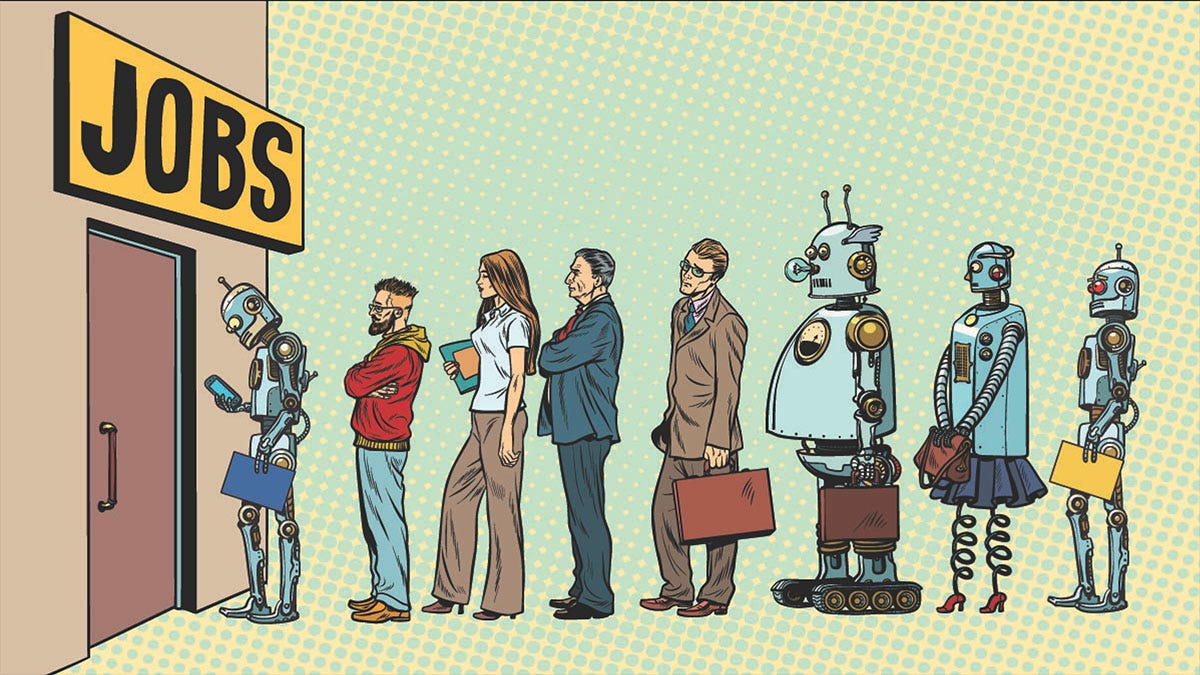actually, no, chatbots aren't taking your job
A new study from Yale exposes the lie at the heart of the AI bubble.
Every day since 2020, thousands of wannabe tech influencers on social media post that AI will take 90% of all jobs in two to five years. Given the pace of automation and the millions of workers laid off since the start of the year, it seems as if they’re finally on to something, broken clocks being right twice a day and all. And yet, a new study from Yale shows that AI had practically zero effect on employment.
This seems bizarrely counterfactual, but it actually makes a lot of sense if we look at the global context. In one breath, a major American company lays off 10,000 workers in the United States. In the next, it’s opening a new office in India and announcing big plans to hire 12,000 employees. Meanwhile in Europe, with much stronger labor laws and employee protections, effects have been negligible, not even reducing wages.
It also adds up from a technical perspective. Generative AI offers marginal gains to a skilled professional at best, and only when extensively trained in their domain, and up to half of all AI startups aren’t even working on automating work companies actually want their AI tools to handle. Supervisors sold on AI’s revolution-as-a-service model are also discovering that they’re paying thousands of dollars every month for tasks a simple script could handle.
On top of all that, LLMs are also wrong more often than they are right in very subtle and problematic ways, and relying on them while also threatening your employees to work harder or be replaced negatively impacts both the quality of work they produce and the customers’ experience. People are also noticing the increasing desperation and escalating grand proclamations of AI startups, and are starting to worry about a new bubble, one which could send the economy into a tailspin if it pops.
In short, what the studies are saying is that while automation does have effects on all sorts of jobs and will continue to do so, generative AI such as LLMs, image, and video generators aren’t destroying the labor market as predicted. They’re just being used to justify outsourcing projects and layoffs that companies already wanted to do after the interest rates soared to try and combat post-COVID inflation.
Saying that your AI tools are so amazing and you’re so ahead of the curve that you no longer need tens of thousands of people sounds a lot better to investors and far more palatable to the media and politicians than “we want to pay people less so we want to hire an army of cheaper overseas workers we can burn out.”
And so, that’s exactly the script corporations are following, and the media never asks for more details, or pushes back on the narrative after doing a little cursory research on LinkedIn where they can easily see the bait and switch.
This lack of pushback and pointed questions is important. It allows for the idea that companies don’t need us, that we need them and must settle for what they offer us because it’s better than nothing and they can just automate us given enough time, to spread unimpeded when the truth is very different.
We are still at least a necessary evil to corporations, and job seekers aren’t fighting machines, but competing with a cheaper workforce in other nations, and the cost of unprofitable, unwanted ideas being pitched to both investors and customers as the second coming of fire, the wheel, and antibiotics all put together.




Finally, some level-headed commentary.